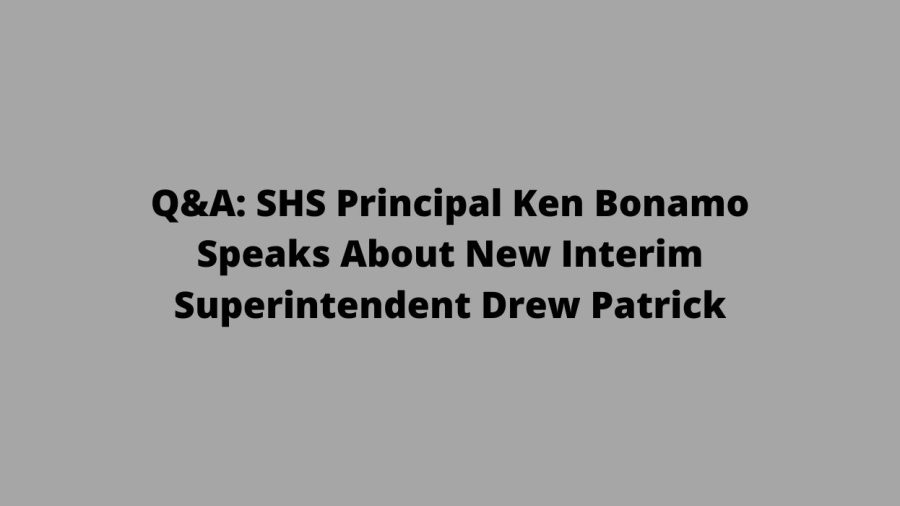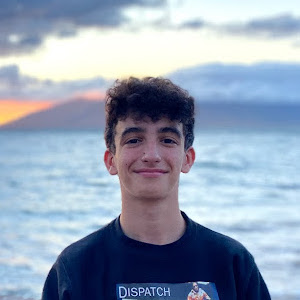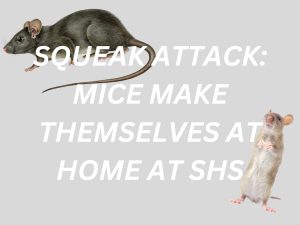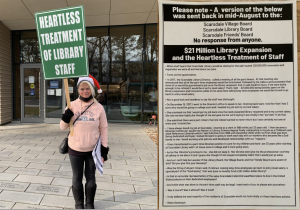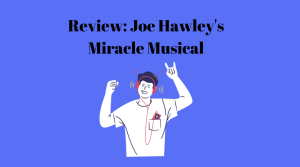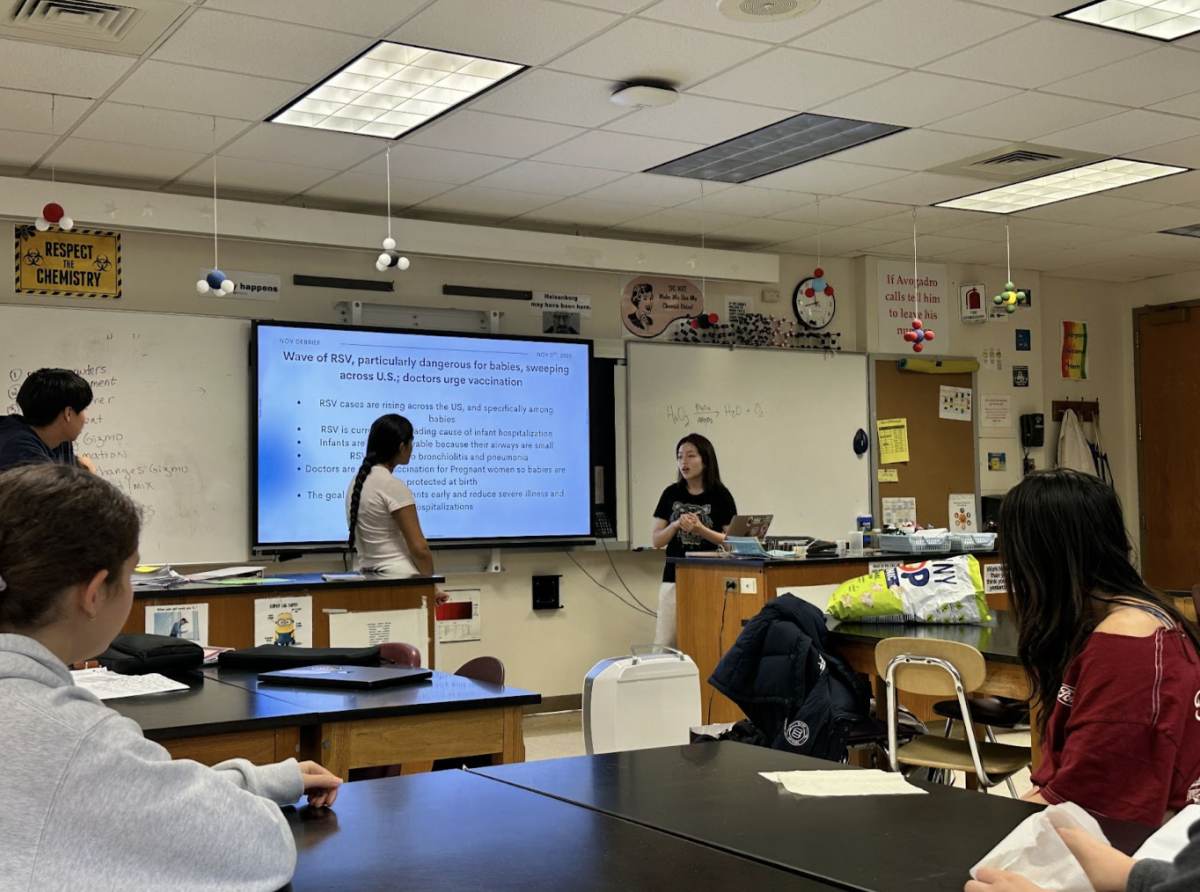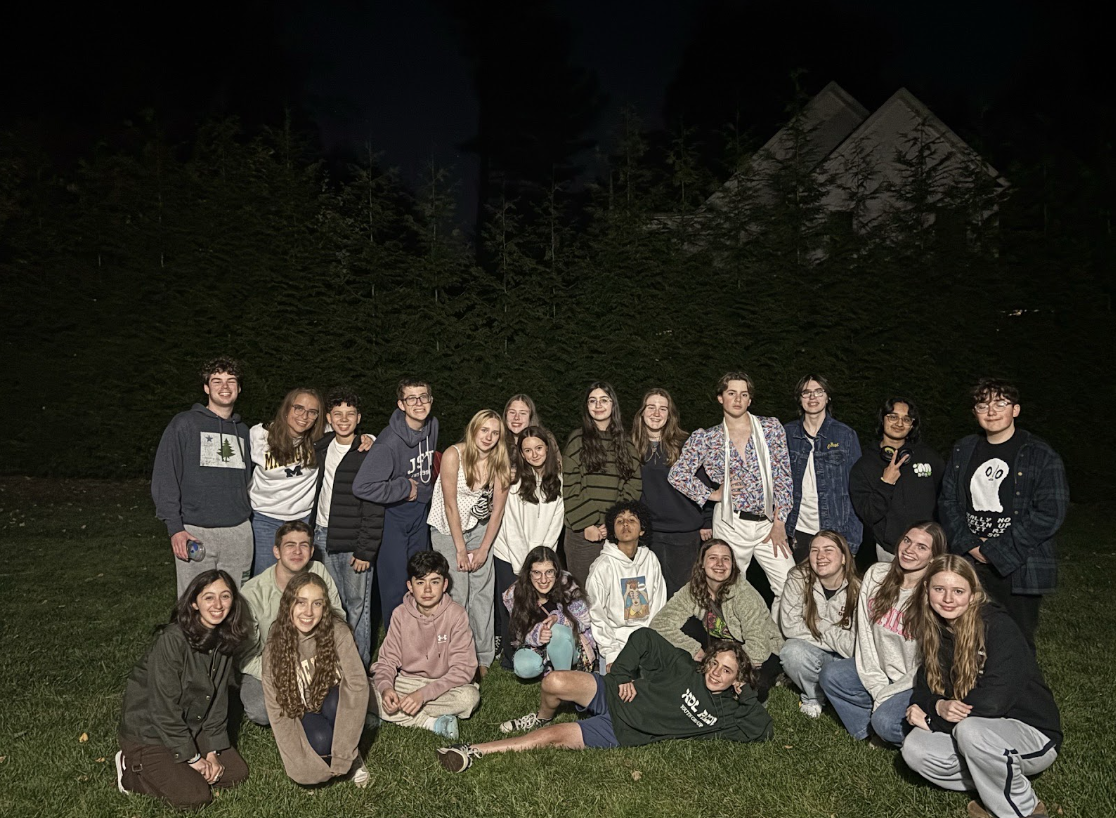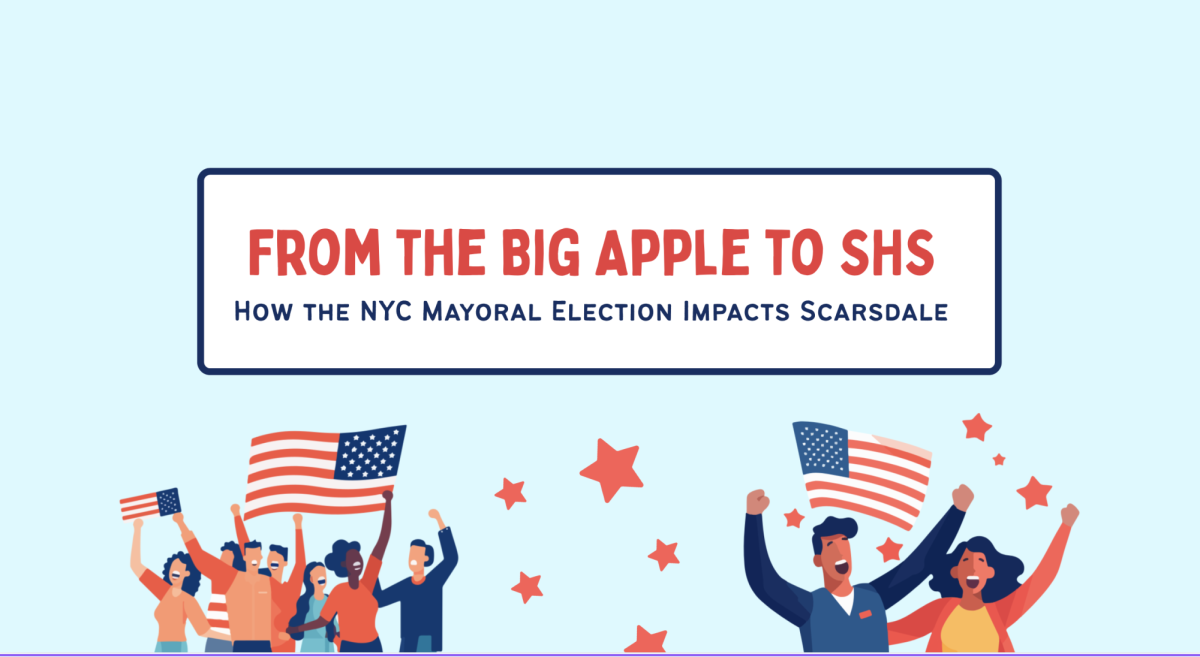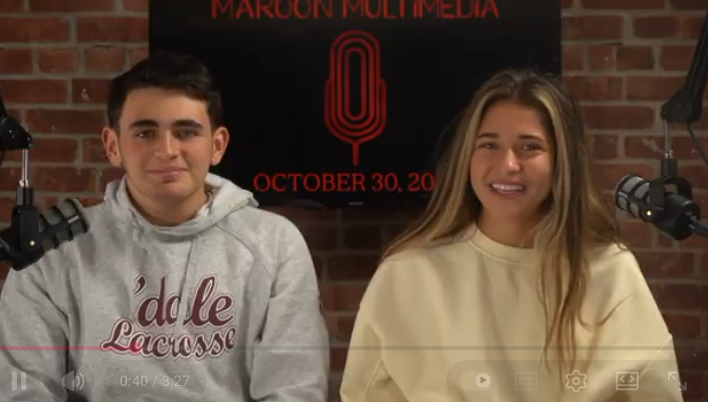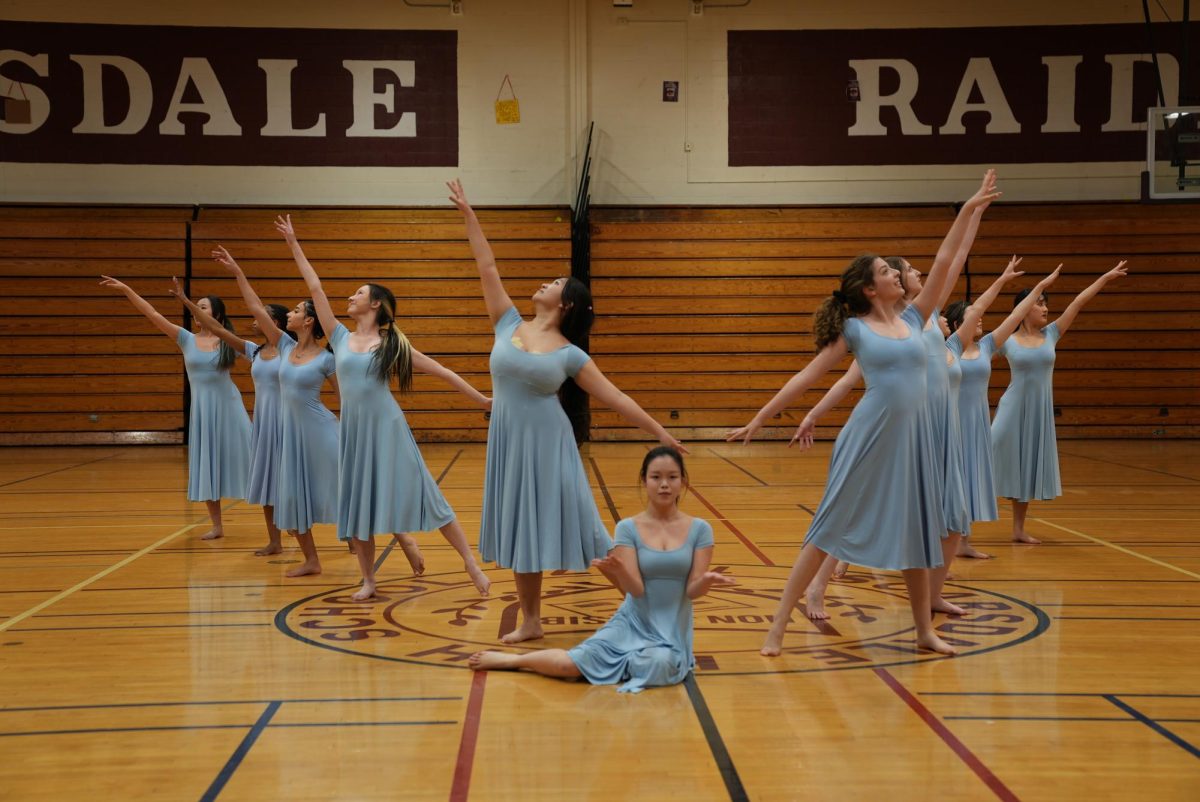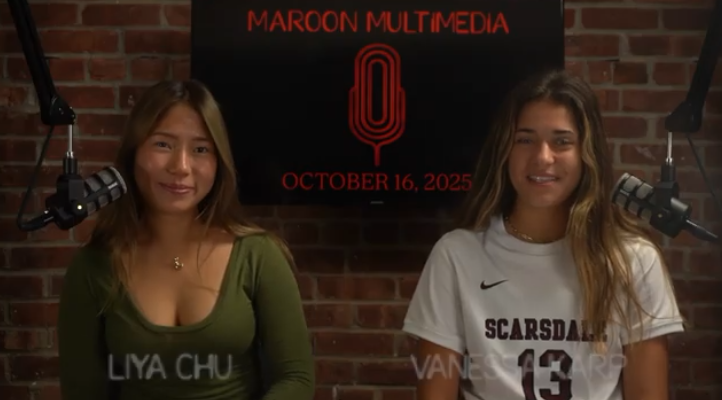Q&A: SHS Principal Ken Bonamo Speaks About New Interim Superintendent Drew Patrick
On Friday, May 6, SHS Principal Ken Bonamo did an interview with Maroon about Interim Superintendent Drew Patrick.
May 14, 2022
On Friday, May 6, briefly after the School Board announced that Dr. Thomas Hagerman was resigning effective that day, Maroon had an interview with SHS Principal Ken Bonamo about Interim Superintendent Drew Patrick, who assumed that role on Saturday, May 7. Bonamo spoke highly of Dr. Patrick’s ability to lead the district forward. Below is a transcript of that interview, edited for clarity.
Maroon: Can you tell me your thoughts about Dr. Patrick becoming Interim Superintendent?
Bonamo: I’m very grateful that Dr. Patrick is stepping into this role. Since he came to the District several years ago, I’ve really enjoyed a great working relationship with him. I find him to be incredibly thoughtful and knowledgeable. He draws on a vast and diverse set of experiences in education and in his life to inform his thinking and decision-making, and in addition to that, he is an incredibly compassionate person. In dealing with employees, which is his previous role, he always finds a way to think about the institution and the organization, as well as the needs of individuals, and that compassion is always present in his thinking.
Maroon: What has your experience been like with Dr. Patrick, either working with him or just knowing him?
Bonamo: Dr. Patrick, in a beautiful way, envisions being a leader in education as having with it the responsibility to be a teacher of teachers. For example, he brought to the district Research for Better Teaching, which is an excellent professional development firm out of Massachusetts, to help bring new teachers on board, to give them a set of goals to draw on in their repertoire of pedagogy, and it was so successful that some of our experienced teachers began to take the class to see what they had to offer. For the administrators, the building leaders, and the district leaders in the School District, he has brought in Ellie Drago Severson, from Teachers College at Columbia University, to help us think about the work that we do as leaders in managing people who have different ways of knowing, who are at different points in their career. Because a lot of what we do as administrators is managing people and dealing with people who are really great and who may also need some feedback and have a difficult conversation from time to time, or are dealing with personal challenges or are trying to identify a new area of growth. In bringing these experts into us, in making our conversations focused on learning and focus on our own development as educators, as well as thinking about integrating that learning into our practice, Dr. Patrick exemplifies what it means to be an educational leader.
Maroon: So you talked about some of the impacts he’s made in his previous roles. What impact do you expect him to make in his new role as interim superintendent?
Bonamo: That’s a great question. We will begin to see, I would hope, a continued focus on some of the areas that I mentioned. The superintendent has to think about being an educator for the community. There are a lot of administrative functions that a superintendent is responsible for. Obviously, management at the district, meeting with the Board of Education, creating a strategic plan, setting goals, achieving those goals, creating action plans for those goals, and so forth. And maybe when there’s a bond proposal, creating a plan of what is going to be included in that bond, then convincing the community that it’s worth the investment, and so on and so forth. And that is a job in and of itself, especially in a place like Scarsdale. But he will add to those components the responsibility to educate the community about what it means to be a school district and to educate children in the context of the current day.
We’ve been working on our Diversity Equity and Inclusion initiative for a number of years. It’s come to the forefront locally in Scarsdale really in the last year and we’ve been working on it at the high school for a number of years. You might see some language that invites people to learn together how we can make sense of DEI in the context of Scarsdale. You might see, bringing people in, especially as a new superintendent, bringing all stakeholders together, the constituent groups to articulate what they would like to see in a strategic plan, where they would like to go as a district, and really viewing it as an area of inquiry, and valuing voices from different groups. And not only at a purely administrative task. What I’m saying is, You’ll see elements of teaching in the way he performs the different responsibilities of the job.
Maroon: That makes sense. I know that Dr. Patrick has worked with teachers a lot, as you’ve talked about, and I’ve heard that teachers generally really like him. Is there anything you can say about that?
Bonamo: You’ve heard correctly. Teachers, in Scarsdale especially, want to feel supported. They want to feel that they have someone in any number of administrative roles, whether it’s the principal, assistant superintendent, superintendent, someone who has been in the classroom, knows what it means, knows the job, was good at the job, and respected as a teacher. And also, like I said, has that humanity and compassion. Teachers are adults who have a whole host of things going on in their lives. They care for sometimes aging and sometimes sick parents. Or they have a sick child, or child with special needs, or they’re going through a divorce. And there are times when people need a little bit more flexibility than we might normally extend them. Dr. Patrick e finds a way to do that. And teachers in Scarsdale also want to know that people are held to a standard and called to account when they need to be. And he has shown that also. I have seen him in both modes. I have seen him be generous and kind with someone who needs that in that moment. And I have seen him have a difficult conversation with someone who needed to hear some critical feedback. And if teachers know that it’s not all one or all the other, because sometimes we can fall into that category, If they know the generosity will be there when the reason merits it, and the hard conversation will be there if the situation developed, that’s how they approach, in my view, their work with students. It’s great to praise students to say, “What a great job you’ve done on this paper,” or “You really made an insightful comment.” And then by and large, our teachers are compassionate with students who need accommodations or some flexibility because they have something going on in their lives. And they also say to kids, “This wasn’t your best work, and we need to work on that,” and those are hard conversations too. So we’re doing that all the time as teachers. To know that we have a leader who is able to do that with adults, which is more complicated in some ways, because adults have different factors going on, they learn from that; in my own work, I’ve learned from him. And it motivates us to be good at what we’re doing as well, and also to be kind and compassionate to one another.
Maroon: In terms of students, is there any way that students could be most helpful in this transition? What should students expect in this transition period?
Bonamo: Dr. Patrick is certainly a scholar. He taught Earth Science. He is committed to issues around sustainability, and he would really enjoy opportunities to partner with students who are interested in that work, either learning more about it or making local decisions and actions that are reflective of a commitment to sustainability. I know that he did that kind of work in his previous district in Bedford. And he has talked about with us installing solar panels to really make a bolder attempt at reducing our carbon footprint. He enjoys working with students; he gets a real kick out of seeing children, K-12. He has his own children, and he really appreciates the impact that education can have. He himself was a teacher, and a leader, and has excelled. His research for his doctoral degree was in teacher evaluation systems. He has really gone very deeply into how teachers can be effectively evaluated and what systems we should have in place and so on and so forth. So there are so many aspects to who he is as a person and as a leader.
If students can find ways, understanding that his plate will be very full, especially in the near term, but as he assumes the Superintendency, find ways to connect with him on areas of shared interest, that would maybe speak to his own interests and also further the work of the district in an area like sustainability, for example. He’s a really big proponent of student voice in classroom lessons and in overall school functioning. By the nature of the job, he will be removed a bit from the student experience, but if we can help find ways to bring him in, he would love that very, very much.
Maroon: That’s good to hear. Is there anything else you wanted to say?
Bonamo: I’m very grateful that someone of Dr. Patrick’s caliber, intelligence, experience, and humanity is stepping into the role at this time. A change in leadership is difficult. It was unexpected already. And then, of course, today’s announcement makes it even more so. Certainly, we are reassured that a familiar person of distinguished talent is going to be leading us through a time of transition. I hope that this position will allow more members of the community beyond those who know him well, to get to see the really incredible leader and person that he is. And moving forward, this interim position will give him the platform to do that.
Maroon: Thank you so much.

